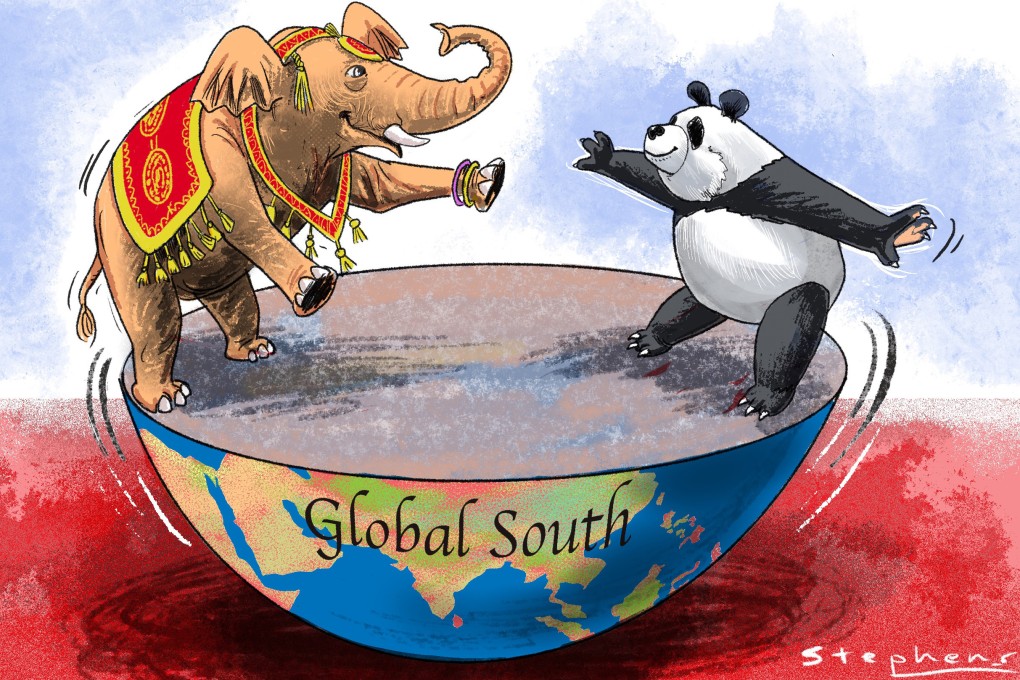Advertisement
Opinion | China-India border detente paves way for a more balanced world order
While Beijing and New Delhi have their own interests in settling tensions, greater cooperation is a net positive for the Global South
Reading Time:3 minutes
Why you can trust SCMP

Just before the 2024 Brics summit, India and China reached a significant agreement on de-escalating border tensions. In an interview on NDTV, Indian Foreign Minister Subrahmanyam Jaishankar said the deal would allow border patrols to be conducted the way they used to be in 2020, ostensibly before the deadly Galwan Valley clash.
On Tuesday, this position was echoed by Chinese Foreign Ministry spokesperson Lin Jian, who confirmed the progress, saying that China “will work with India to properly implement [the] resolution”.
In a larger geopolitical context, the deal reflects the shaping of a new world order with a non-Western bloc that does not necessarily oppose the West but seeks to challenge its long-held hegemony.
Advertisement
Indian Prime Minister Narendra Modi and Chinese President Xi Jinping held their first formal bilateral dialogue in five years on Wednesday, on the sidelines of the Brics summit in Kazan, Russia. Xi acknowledged the responsibilities of both nations – key members of the Global South – to boost the strength and unity of developing countries. After the meeting, Modi underscored the significance of peace, not just for bilateral ties but for global stability.
The groundwork for the border deal has been laid over the past two months through high-level engagement, including two meetings between Jaishankar and Chinese Foreign Minister Wang Yi in July. Wang also met Indian National Security Adviser Ajit Doval last month in St Petersburg.
Advertisement
India has consistently made it clear that settling the border issue was a necessity for advancing relations with China. Both nations stand to benefit from this development. India seeks to further grow its economy while China needs India to secure vital partnerships amid its economic slump.
Advertisement
Select Voice
Select Speed
1.00x
.jpg?itok=T4p1uz8K&v=1753929133)